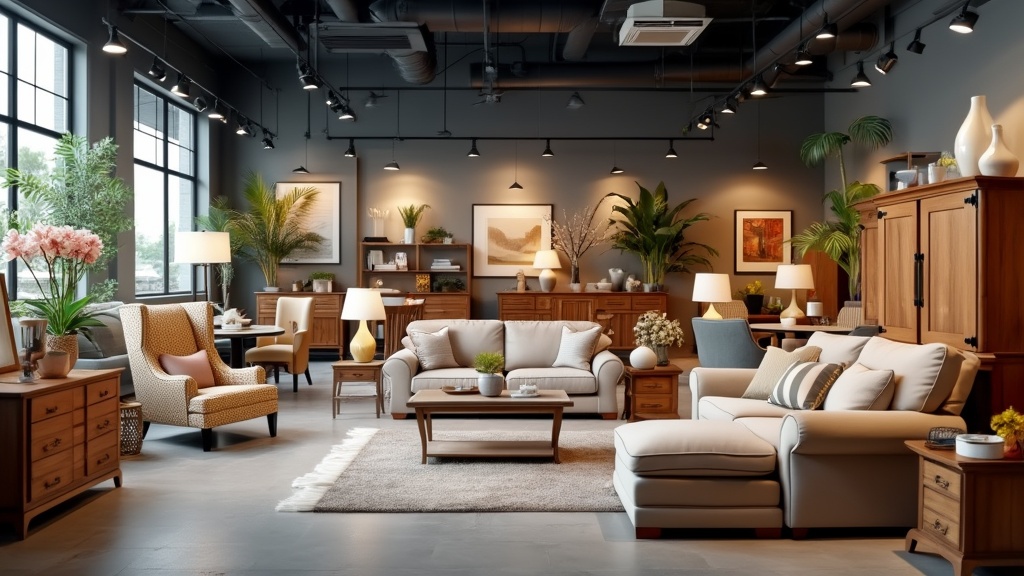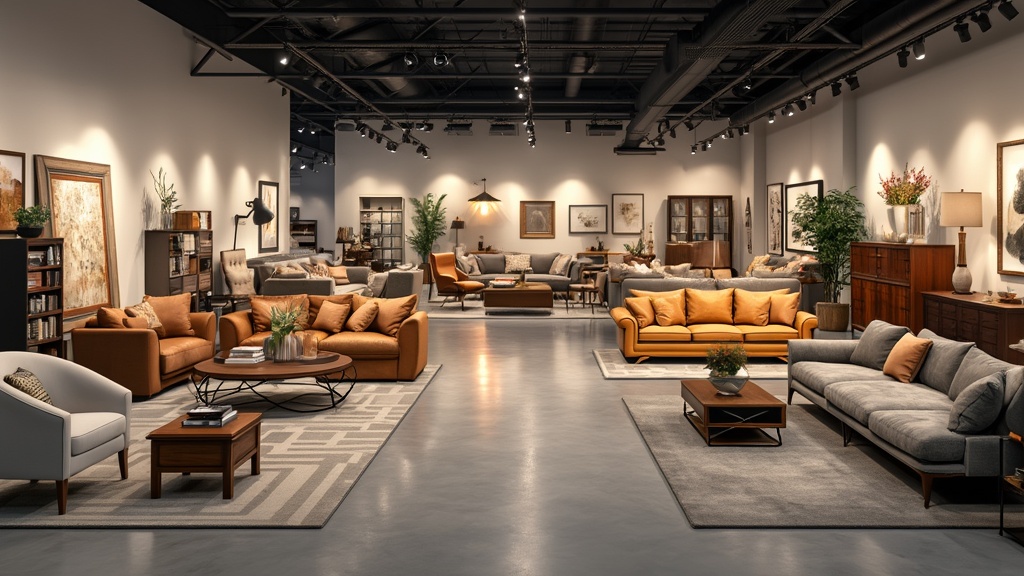Wholesale furniture suppliers in North Carolina stand out for their commitment to offering quality choices in the market. With a rich tradition in North Carolina craftsmanship, these suppliers provide an array of options suitable for both residential and commercial settings.
The blend of modern designs with traditional styles allows buyers to find furniture that meets their unique preferences.
The region’s reputation for price competitiveness makes it a go-to destination for bulk buyers seeking affordable solutions.
Click here to learn more about: resale certificate north carolina nc
North Carolina Furniture Manufacturing Insights
The history of furniture manufacturing in North Carolina goes back several decades, laying the foundation for a thriving industry.
Companies like Thomasville Furniture and Henredon have been pivotal in shaping local practices and enhancing furniture distribution. The following highlights showcase how this sector contributes to the economy:
- Job Creation: Local manufacturers play a crucial role in generating employment opportunities.
- International Business: The state attracts global attention through events like furniture trade shows.
- Innovative Practices: Adoption of sustainable practices is a hallmark of many North Carolina manufacturers.
Furniture distribution has been revolutionized by integrating advanced technologies, improving efficiency while upholding high-quality standards. Innovations in using ecofriendly materials reflect a commitment to responsible manufacturing that resonates with current market trends.
The focus on hardwood products and metal furnishings showcases the craftsmanship unique to this region.
North Carolina’s vibrant community of local artisans brings forth handcrafted items that appeal to discerning customers. With options spanning from living room sets to bedroom collections, the diversity in furniture collections is remarkable. This local craftsmanship ensures that buyers have access to unique pieces that enhance their homes.

What Are Greensboro Suppliers Offering
Greensboro suppliers provide a diverse array of furniture products, including sofas and chairs, tables, and various accessories. These local suppliers represent a significant resource for both consumers and businesses interested in furniture distribution across North Carolina.
Current trends reveal an increasing demand for sustainable materials and customizable designs, which resonate with the values of today’s consumers.
The availability of eco-friendly options signifies a broader shift towards sustainability within furniture manufacturing.
Product Range and Custom Options
Greensboro suppliers specialize in a wide variety of products, ranging from residential furniture to commercial furniture.
Customers can explore numerous options for seating solutions, including living room sets, bedroom collections, and dining room options. Many suppliers offer custom options, allowing clients to tailor their purchases to specific needs, whether that means selecting from various upholstery choices or choosing quality materials for bespoke designs.
Regional Trends and Partnerships
Notably, the trend towards collaboration with local artisans enhances the uniqueness of available items, leading to an array of handcrafted pieces and specialty furniture. The emphasis on North Carolina craftsmanship and partnerships with independent designers enable Greensboro suppliers to provide diverse product ranges that cater to the evolving tastes of modern buyers.
Such collaborations not only enrich the selection but also promote the region’s artistic talent, leading to distinctive offerings in the marketplace.
The Role Of High Point Market
High Point Market serves as a pivotal global furniture trade show that notably impacts the overall landscape of the furniture industry.
This premier venue highlights innovative designs and launches new products, attracting numerous furniture retailers and buyers worldwide.
By observing trends emerging from this market, suppliers can refine their offerings to better match shifting consumer preferences.
Influencing Design Trends
Participation in the High Point Market greatly influences the development of design trends, allowing local suppliers to integrate fresh ideas into their inventory. The international presence adds an enriching layer to local tastes, fostering a dynamic environment for exchanging ideas and styles.
Suppliers gain insights into market trends and consumer demands, positioning themselves strategically within the furniture distribution ecosystem.
Networking and Collaboration Opportunities
Beyond product showcasing, the High Point Market also provides exceptional networking opportunities essential for building partnerships and collaborations. Suppliers can connect with design services and other industry professionals, paving the way for innovative advancements in furniture creation.
These relationships can lead to fruitful ventures, bolstering the industry’s growth and enhancing overall market competitiveness.
Greensboro Suppliers
- Greensboro suppliers offer a diverse range of furniture products, including sofas, chairs, tables, and accessories.
- There is a growing demand for sustainable materials and customizable designs among consumers in North Carolina.
- Collaboration with local artisans leads to unique handcrafted pieces and specialty furniture that reflect North Carolina craftsmanship.
- The High Point Market serves as a key platform for suppliers to observe emerging trends and network with industry professionals.
Discovering Custom Options For Your Needs
Tailored furniture solutions significantly transform living spaces, addressing individual preferences and specific requirements. Custom furniture not only enhances aesthetic appeal but also improves functionality, enabling unique designs that fit particular dimensions.
For instance, when considering Hickory furniture, craftsmen can create pieces that seamlessly blend form and function, utilizing quality materials to enhance both durability and style.
The impact of sustainability is another key factor; custom projects often lead to reduced wastage, as they utilize resources ideally suited to each request.
Notably, supporting local artisans through customization promotes community craftsmanship, thereby lessening the environmental impacts associated with mass production.
Exploring Sustainable Practices In Furniture
Recent trends indicate that sustainability has become a foundational element of furniture manufacturing, with numerous companies showcasing eco-friendly values. By integrating eco-friendly materials such as reclaimed wood and bamboo, manufacturers can minimize reliance on virgin resources while supporting a healthier planet.
Innovations in manufacturing processes play a crucial role; for instance, the use of low-emission adhesives significantly reduces the overall carbon footprint of production.
Consumer Preferences Towards Eco-Friendly Options
Consumer preferences are increasingly shifting towards brands that champion sustainable practices, with many individuals prioritizing environmental considerations in their purchasing decisions.
As a result, several companies are adopting green practices to enhance their customer care and foster brand loyalty, creating a ripple effect that encourages a more sustainable furniture industry.
Factors influencing these preferences include:.
- Transparency in sourcing materials
- Commitment to reducing environmental impact
- Innovative designs that utilize quality materials
Enhancing sustainability in furniture is not just a trend; it’s a movement towards conscious living.
Custom and Sustainable Furniture
- Custom furniture can reduce waste by utilizing materials specifically suited to individual projects.
- Using eco-friendly materials like reclaimed wood can significantly lower the environmental impact of furniture production.
- Low-emission adhesives in manufacturing processes help decrease the carbon footprint associated with furniture creation.
- Brands that prioritize sustainability tend to foster stronger customer loyalty and positive brand perception.
How To Select Quality Materials
Making informed choices about quality materials is essential for any successful furniture project. Prioritizing durability ensures selections meet long-term performance needs; materials such as hardwood products typically outperform alternatives in terms of longevity.
Aesthetics play an equally significant role; the right materials should enhance the overall design vision, whether opting for contemporary furnishings or traditional styles.
Local sourcing can provide numerous benefits.
Supporting regional suppliers not only boosts the local economy but also reduces transportation emissions, contributing to more sustainable practices. When choosing materials, consider the following factors:
- Durability: Assess the expected lifespan of various materials.
- Aesthetics: Ensure materials align with your design vision.
- Environmental Impact: Look for eco-friendly options, such as eco-friendly materials.
- Local Availability: Identify local artisans and suppliers who can provide unique options.
By consciously selecting locally-sourced materials, you may discover unique options that enhance character and individuality in your pieces. Ultimately, prioritizing both durability and style guarantees your furniture remains functional and visually appealing for years to come.
Benefits Of Design Partnerships With Suppliers
Collaborative efforts through design partnerships can significantly enhance product offerings in the competitive furniture manufacturing market. Such collaborations often lead to shared resources that improve efficiency and help reduce costs. Notably, accessing the expertise of interior design suppliers may open avenues for innovative solutions; designers can gain insights about the latest market trends or materials.
Shared Resources and Expertise
Engaging with partners allows for:.
- Resource Sharing: Combining assets can lead to cost savings.
- Expert Guidance: Suppliers may offer vital knowledge about furniture collections and new technologies.
- Creative Collaborations: Join forces with local artisans to create unique, handcrafted items.
Case Studies of Successful Partnerships
Successful partnerships illustrate the potential of collaboration in the furniture industry. For instance, a well-known brand formed a partnership with local artisans for sustainable designs, which not only increased visibility but also reinforced brand credibility. Such initiatives can drive engagement and foster customer loyalty, positioning businesses favorably in a competitive landscape.
By nurturing these relationships, companies in the furniture distribution sector can differentiate themselves, creating remarkable products that resonate with consumers while supporting local economies.
Quality Materials and Design Partnerships
- High-quality materials can extend the lifespan of furniture, reducing the need for replacements.
- Collaborative design partnerships can lead to cost savings of up to 20% through resource sharing.
- Eco-friendly materials are increasingly preferred by consumers, with 73% willing to pay more for sustainable options.
- Brands that engage with local artisans can see a 30% increase in customer engagement and loyalty.
Navigating Furniture Distribution And Delivery Solutions
Efficiency in furniture distribution hinges on overcoming numerous logistical challenges. Heavy and bulky items complicate transport, necessitating specialized handling techniques that ensure safety and accuracy.
Last-mile delivery presents additional hurdles, often leading to increased costs and potential delays.
Technology plays a significant role in alleviating these issues; for instance, inventory management systems effectively track stock levels, minimizing both overstock and stockout scenarios.
Streamlining Distribution Through Technology
Utilizing route optimization software enhances operational efficiency, allowing for more effective scheduling and resource allocation.
These systems evaluate traffic patterns, delivery times, and load capacities, significantly improving the overall logistics process. To illustrate, companies leveraging advanced supply chain logistics can offer faster delivery times, resulting in higher customer satisfaction.
“By integrating technology into furniture logistics, businesses can transform their distribution strategies. ”
Ensuring Timely Delivery While Maintaining Quality
To secure timely delivery without sacrificing quality, consider implementing strict quality assurance protocols at every stage of the process, ensuring that customer expectations are consistently met.
Strategies may include:.
- Conducting regular training for staff on handling quality materials.
- Developing a checklist for inspections throughout the shipping process.
- Establishing strong connections with regional suppliers to ensure reliability.
- Utilizing feedback systems to improve customer care based on client experiences.
Embracing such practices is essential for adapting to evolving market trends and maintaining a competitive edge in the furniture manufacturing industry.
Furniture Distribution and Delivery
- Over 70% of logistics costs are attributed to last-mile delivery challenges.
- Companies using route optimization software can reduce delivery costs by up to 30%.
- Implementing quality assurance protocols can lead to a 25% decrease in product returns.
- Businesses that integrate technology in logistics report a 50% increase in customer satisfaction ratings.
Britishinspired Furniture Wholesale Transforms Your Space
North Carolina Resale Certificate Simplifies Wholesale Furniture Sales


